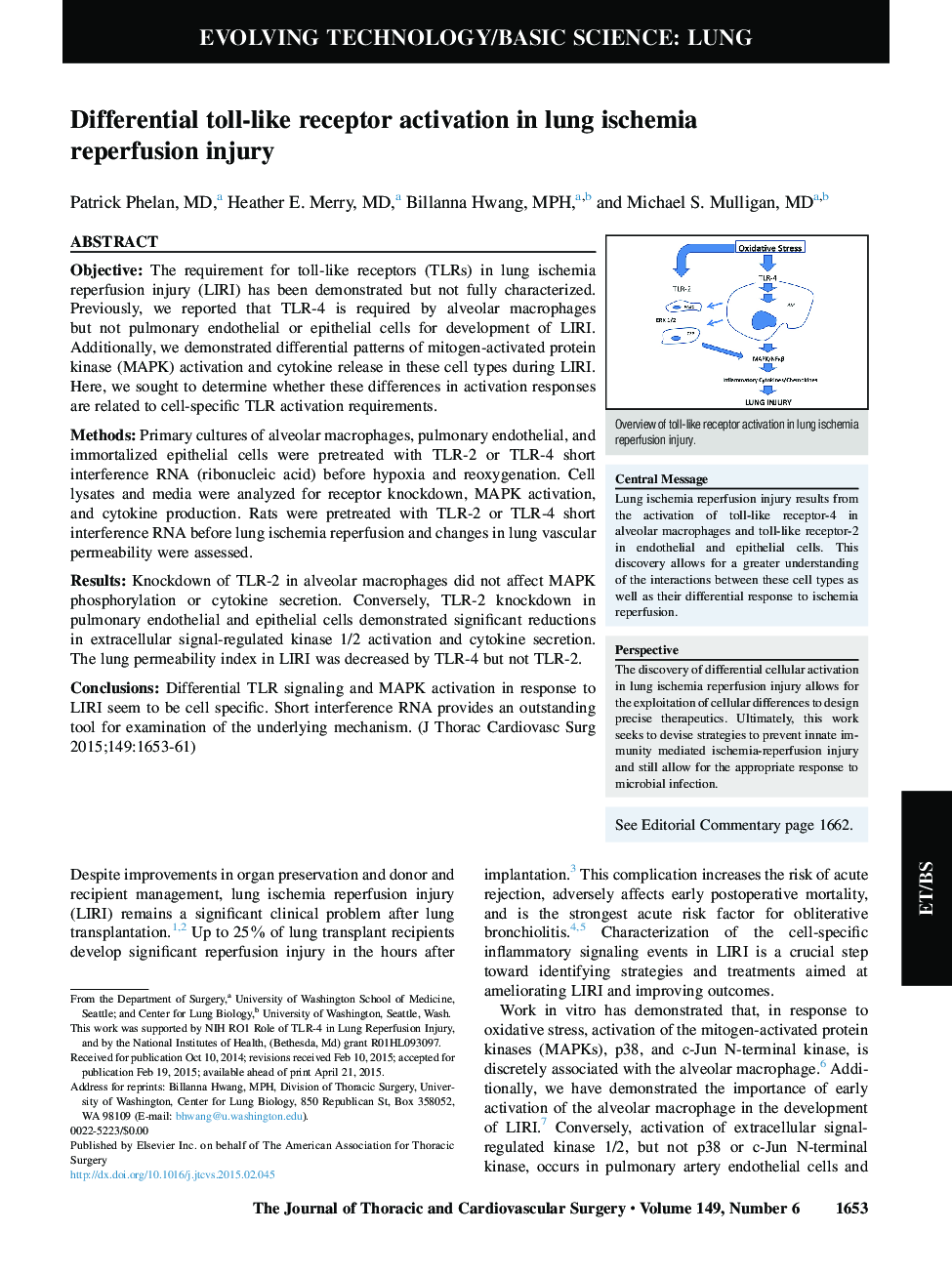| Article ID | Journal | Published Year | Pages | File Type |
|---|---|---|---|---|
| 5989154 | The Journal of Thoracic and Cardiovascular Surgery | 2015 | 9 Pages |
ObjectiveThe requirement for toll-like receptors (TLRs) in lung ischemia reperfusion injury (LIRI) has been demonstrated but not fully characterized. Previously, we reported that TLR-4 is required by alveolar macrophages but not pulmonary endothelial or epithelial cells for development of LIRI. Additionally, we demonstrated differential patterns of mitogen-activated protein kinase (MAPK) activation and cytokine release in these cell types during LIRI. Here, we sought to determine whether these differences in activation responses are related to cell-specific TLR activation requirements.MethodsPrimary cultures of alveolar macrophages, pulmonary endothelial, and immortalized epithelial cells were pretreated with TLR-2 or TLR-4 short interference RNA (ribonucleic acid) before hypoxia and reoxygenation. Cell lysates and media were analyzed for receptor knockdown, MAPK activation, and cytokine production. Rats were pretreated with TLR-2 or TLR-4 short interference RNA before lung ischemia reperfusion and changes in lung vascular permeability were assessed.ResultsKnockdown of TLR-2 in alveolar macrophages did not affect MAPK phosphorylation or cytokine secretion. Conversely, TLR-2 knockdown in pulmonary endothelial and epithelial cells demonstrated significant reductions in extracellular signal-regulated kinase 1/2 activation and cytokine secretion. The lung permeability index in LIRI was decreased by TLR-4 but not TLR-2.ConclusionsDifferential TLR signaling and MAPK activation in response to LIRI seem to be cell specific. Short interference RNA provides an outstanding tool for examination of the underlying mechanism.
